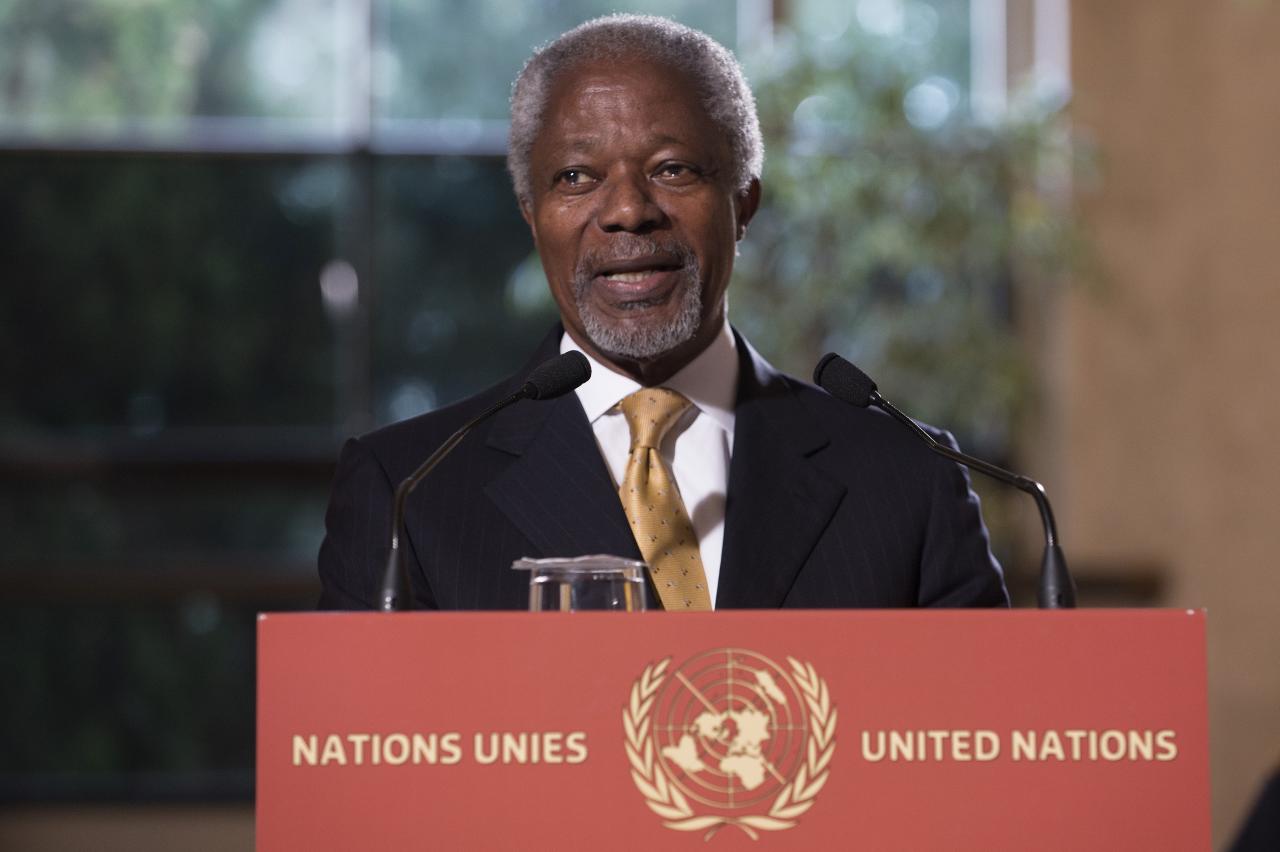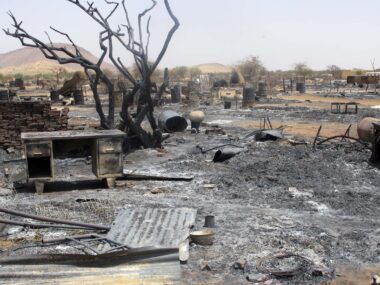By Allard Duursma and guest contributors Julia Friedrich and Niklas Masuhr
Since Russia launched its full-scale invasion of Ukraine, responses in the United States and Europe have been fairly uniform in their shock, horror, and anger at Russian aggression. While Russia’s propaganda about its “special military operation” has so far gained little traction in Europe, the picture is very different in Africa.
Over the last decade, Russia has engaged in a concerted campaign to gain influence on the African continent. Most recently, Russian mercenaries drove out the French military presence in Mali, resulting in a spike in civilian casualties in that West African country.
Western analysts are often preoccupied with concerns about Chinese inroads into the African continent, which have a much larger footprint and consist of visible infrastructure projects and increasingly less concealed attempts to influence politics. Russia by contrast manages to accrue influence more haphazardly by playing to its strength and exploiting Western weaknesses. And while the sustainability of Moscow’s influence can be doubted, at present its efforts are proving effective and can be conducted on the cheap.
How is Russia able to exert a growing influence on the African continent?
The Soviet Union’s Anti-Imperialist Legacy
Moscow has actively latched onto the Soviet Union’s legacy of supporting liberation struggles and post-colonial governments, which resonates with many African leaders who, despite having a general suspicion towards external actors, most often perceive neo-colonial influence as explicitly Western. Contemporary Russia has pushed a narrative of being a natural ally to African states, one that respects their sovereignty, in contrast to neo-imperialist Western meddling. This rhetoric is used in Russian projects in the Central African Republic (CAR), South Africa, Sudan, Libya, the Democratic Republic of the Congo, and recently Mali. Internal Russian documents, leaked in 2019, make this explicit: Moscow should support the development of African self-identities due to the historic anti-imperialist (read: anti-Western) nature of pan-African visions.
A Patronage-Based Model of Politics and Business
Russia’s political power projection in Africa is not run primarily through agents of the state but by Russia’s “shadow state,” a vast network of politico-oligarchic individuals and their networks that intersect with political administrations and security services but often act on their own accord. This shadow state is perfectly suited to operate in political contexts across Africa where patronage rules, and has the ability to effectively embed into local contexts.
The most visible element of this model has been the presence of businessman Yevgeny Prigozhin, who has served as Moscow’s point man in Africa since the mid-2010s. One of Vladimir Putin’s confidants, he advances Russian interests through a network referred to as the “Company,” which includes the infamous Wagner group, a private military company that also operates in Ukraine. The network also deploys “political technologists” and other advisors that provide services to local allies such as expertise for elections, often in exchange for resource concessions.
Working through a mix of official and unofficial channels has several advantages for the Kremlin. For one, since Russian interests are tied to individuals and their networks—and not governments—they are resilient to political changes. France’s withdrawal from Mali in the wake of the 2021 military coup illustrates the advantages of Russia’s approach, which is largely agnostic to the legal status or democratic legitimacy of its local partners. Second, it provides a veneer of deniability, since Russia’s agents act independently—at least on paper. Third, it means Russia can establish networks throughout the continent without straining the administration’s budget. Finally, the shadow state frees Russia from the need to project an image of being a “responsible global player,” like China. On the contrary, Russia often seeks to project an image of ruthless pragmatism and unpredictability. As a result, Moscow does not have to care about norms and optics, which have required Beijing to be cautious when it comes to securitizing its projects.
The Fused Nature of Russian Military and Non-Military Activities in Africa
While the notion of Russian mercenaries conjures up images of former Russian paratroopers in polo shirts carrying Kalashnikovs (an image they actively cultivate), the Company’s activities transcend the military sphere by combining paramilitary, diplomatic, and “softer” instruments to garner influence. This fused approach allows Moscow to flexibly adjust to a given context. In this vein, Wagner and other elements of the Company ran a political campaign in favor of CAR President Faustin-Archange Touadéra, which included bribing local militia leaders, providing political advice to the campaign, issuing protection services for Touadéra, and supporting combat operations. It also branched out into the information domain, setting up newspapers and a radio station and even investing in a search engine campaign to boost Russian media sites. The Russian government itself also played an important role in mediating peace settlements between the CAR government and various armed groups in 2018 and 2019.
The War in Ukraine and the Way Forward
In 2019, the head of US Africa Command referred to Russia’s malign influence in Africa as the most significant threat to US interests after terrorism. Yet, it is not immediately clear how Western states can counter Russia’s growing influence.
Though some African leaders—Kenya’s ambassador to the UN being the most prominent example—have warned that falling back into imperialist legacies risks “new forms of domination and oppression,” many African countries abstained from voting on Russia’s suspension from the UN Human Rights Council and refused to comply with Western sanctions. A desire to avoid involvement in a “new Cold War” and to point out the history of hypocrisy among Western leaders, make Western calls for cooperation against Russia increasingly feeble.
While Moscow is by no means the only relevant external actor in Africa, its use of shadow networks allows it to punch above its weight, by co-opting local and regional actors, integrating them into networks and drawing on expertise. The Russian state will continue to provide expertise in paramilitary operations should the opportunity to win more influence this way present itself, while its “deniability” means it can extricate itself without losing face or influence—again, an advantage over the Chinese model that attaches its flag, and thus credibility, to projects. If Western states want to displace Russia as a security provider in Africa, they will have to make tricky trade-offs in terms of matching what Russia offers to several authoritarian regimes.
The case of Mali shows that a prime enabler of Russia’s influence is the West’s failures in political and military terms. If the West is serious about countering Russia’s influence after the war in Ukraine, it will need to prevent these types of failures. Otherwise, Moscow’s low-cost power projection will only gain new opportunities.
Allard Duursma is a Senior Researcher at the Center for Security Studies at ETH Zurich and a permanent contributor at PVG. His research focuses on how mediation and peacekeeping can help to prevent and end armed conflict, with a focus on Africa. Julia Friedrich is a Research Fellow at the Berlin-based Global Public Policy Institute (GPPi) where she investigates security dynamics in Ukraine and Russia. Niklas Masuhr is a Senior researcher at the Center for Security Studies at ETH Zurich, focusing on military strategy and doctrine of Russian and NATO armed forces in particular.






